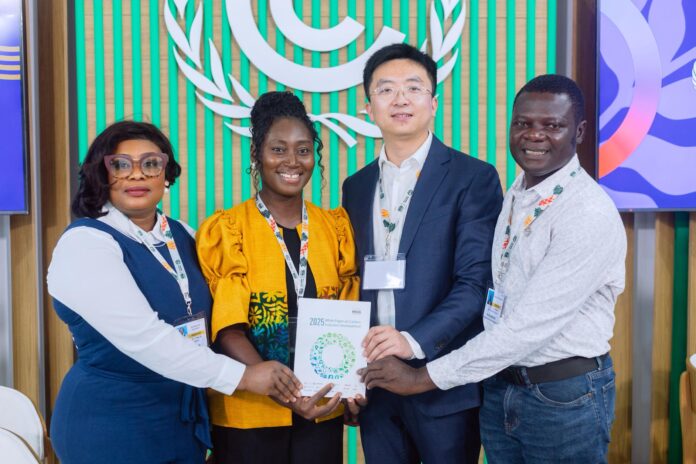The Jospong Group has outlined a new blueprint to accelerate private sector participation in Ghana’s carbon markets, reinforcing the country’s ambition to lead sustainable climate action in Africa.
Speaking at a World Climate Foundation panel during the COP30 Brasil Amazonia, Belém Climate Summit, Dr. Glenn Kwabena Gyimah, General Manager of the Jospong Green Transition Office, stressed the need for stronger collaboration between governments and businesses to ensure carbon markets evolve into effective tools for national development.
According to a release copied to the Ghana News Agency, Dr. Gyimah explained that Ghana’s Article 6 framework, supported by the Carbon Market Office and the National Authorisation Framework, had shifted carbon markets from abstract policy debates to real investment opportunities for the private sector.
Also read: Mahama swears in Justice Baffoe-Bonnie as new Chief Justice today
Providing an update on progress since 2024, he said the Jospong Group had moved from carbon market readiness to “tangible climate action,” integrating its project portfolios into Ghana’s National Carbon Registry. The company’s composting, landfill gas recovery and clean cooking initiatives are now among the first officially recorded in the national system.
Dr Gyimah emphasised that Jospong’s goal extends beyond generating carbon credits. For the company, carbon markets represent “a fundamental redefinition of the private sector’s role in national development.” Every tonne of carbon mitigated, he noted, must translate into concrete social benefits—green jobs, improved agricultural productivity through organic fertilizers, and enhanced urban air quality.
He acknowledged early challenges, including complex Monitoring, Reporting and Verification (MRV) procedures and high verification costs. However, sustained government–business dialogue had yielded solutions that preserved environmental integrity while ensuring investment viability.
Dr. Gyimah also outlined four emerging models shaping Ghana’s carbon market landscape, highlighting the importance of community involvement. Under the Group’s community benefit-sharing model, a portion of revenue from carbon credits is reinvested in local development initiatives such as school upgrades, clean water systems and reforestation programmes.
Carbon markets, according to the UNFCCC, allow countries and organizations to trade carbon credits generated from verified emissions-reduction activities, helping lower global greenhouse gas emissions by assigning value to carbon mitigation. The World Bank adds that carbon markets mobilise climate finance, incentivise low-carbon investments and support developing countries in meeting national climate commitments while creating socio-economic benefits such as jobs, sustainable waste management and cleaner energy.
Dr. Gyimah concluded that Ghana’s experience shows that when governments and the private sector work in harmony, carbon markets become powerful drivers of sustainable national development and green economic transformation—far beyond their transactional value.


